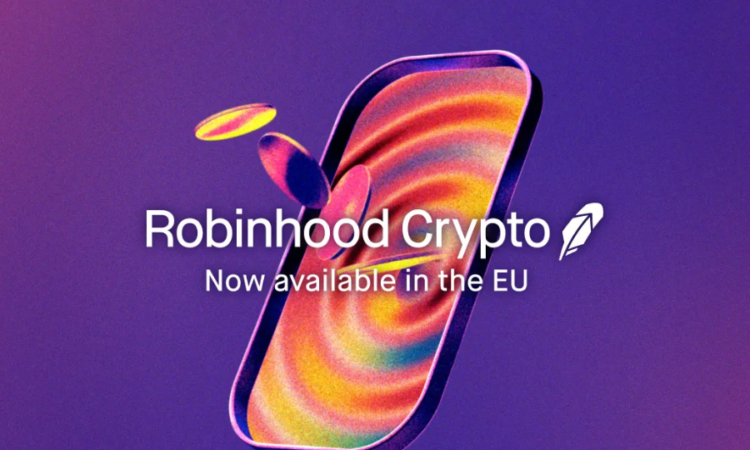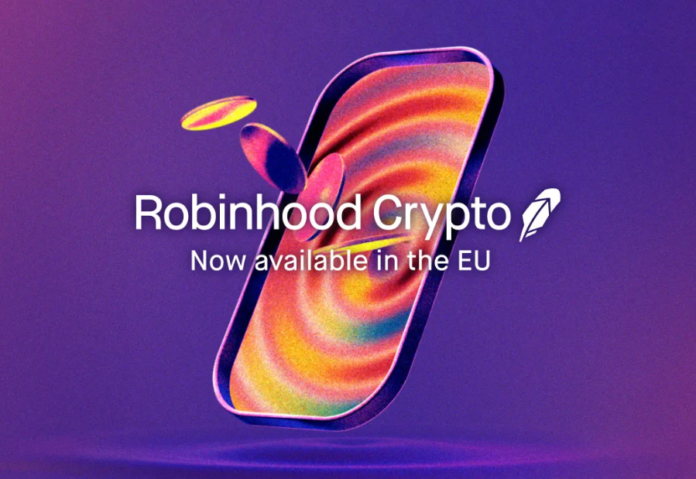
Robinhood debuted its crypto service in the European Union on Thursday, enabling customers to buy and sell a variety of over 25 digital currencies
On Thursday, online brokerage giant Robinhood announced the launch of a cryptocurrency trading function in the European Union, expanding its reach outside the United States as the business seeks to unlock growth from international markets.
Customers will be able to purchase, trade, and hold more than 25 tokens, including bitcoin, ether, ripple, cardano, solana, and polkadot, according to Robinhood’s new crypto product. In 2024, the business intends to offer additional tokens as well as the ability to transfer and “stake,” or receive profits from, crypto.
This is Robinhood’s second major international expansion, following its announcement late last month that it expects to enable stock trades for U.K. users by early 2024. Last Monday, the business launched a waitlist in the United Kingdom for the service, which will give up to 5% on consumer deposits.
Robinhood is attempting to get EU customers to use its service by offering free bitcoin to users who trade lots and suggest the app to their friends. When customers sign up, the company will provide them with up to one bitcoin based on a portion of their monthly trading volume and the number of users they recommend.
It comes as several large US crypto firms seek expansion in the European Union after encountering difficulties with regulators in the United States. The Securities and Exchange Commission has filed lawsuits against multiple cryptocurrency companies, including Coinbase and Binance, alleging violations of securities laws.
Meanwhile, the EU has proposed the Markets in Crypto-Assets law, which would impose stronger controls on crypto trading platforms and issuers of so-called stablecoins—tokens tied to real-world assets such as the US dollar or euro.
According to Johann Kerbrat, general manager of Robinhood Crypto, the company chose the EU as the first international target market for its crypto product due to the region’s development of the world’s first comprehensive set of crypto-specific legislation.
“The EU has developed one of the world’s most comprehensive policies for crypto asset regulation, which is why we chose the region to anchor Robinhood Crypto’s international expansion plans,” Kerbrat said on Thursday.
In order to persuade people to use its service, Robinhood promoted transparency and security aspects in its European crypto offering. The company stated that it would publish trade spreads clearly, including the rebate it receives from sell and trade orders.
Robinhood stated that it never combines consumer currencies with corporate cash for uses other than running expenses, such as payment of blockchain network fees, and that it maintains all of its customers’ coins in cold wallets that are not connected to the internet.
Robinhood also stated that it has criminal insurance coverage in place to protect a portion of the assets kept across its storage systems from theft, including cybersecurity breaches. Underwriters at Lloyd’s, the insurance marketplace, underwrite the policy.
Theft of cryptocurrency has been a serious issue for the industry in recent years, with massive hacks of blockchain networks resulting in millions of digital coins being drained from consumers’ wallets. Recently, the HTX exchange and Heco Bridge, two platforms linked to high-profile entrepreneur Justin Sun, were hacked for an estimated $115 million.
Last year, the infamous former $32 billion crypto exchange FTX collapsed after disclosures that its subsidiary market-making firm, Alameda Research, used user cash to make dangerous bets on particular assets.
Also read: Organizations should be driven based on people and processes instead of emphasizing technology
Do Follow: CIO News LinkedIn Account | CIO News Facebook | CIO News Youtube | CIO News Twitter
About us:
CIO News, a proprietary of Mercadeo, produces award-winning content and resources for IT leaders across any industry through print articles and recorded video interviews on topics in the technology sector such as Digital Transformation, Artificial Intelligence (AI), Machine Learning (ML), Cloud, Robotics, Cyber-security, Data, Analytics, SOC, SASE, among other technology topics.







